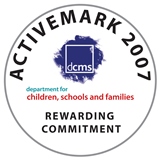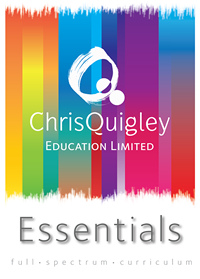((( eSafety ))) KEEPING YOUR CHILD SAFE ONLINE!
UPDATED PARENTAL CONTROL SECTION
 Parental controls are software and tools which you can install on phones or tablets, games consoles or laptops – and even your home broadband. Please help keep your children safe online and read the information provided in this section.
Parental controls are software and tools which you can install on phones or tablets, games consoles or laptops – and even your home broadband. Please help keep your children safe online and read the information provided in this section.
Children love using technology and are learning to navigate websites, online games and consoles, and touch screen technology like iPads and smartphones from a younger and younger age.
Latest Ofcom research has shown that 91% of 5-15 year olds live in a household with internet access
and over a third of all 3-4 year olds are now accessing the internet in their homes. We know that
children need support in these environments, to get the best out of using the internet, and there are real advantages in making sure that children are supported in their internet use right from the start.
These nine frequently asked questions will provide you with useful information and tips that you can put into place at home, to help keep your youngest children safe online:
What are parental controls?
Parental controls are software and tools which you can install on phones or tablets, games consoles or laptops – and even your home broadband.
You can also use them to help you block or filter the content your child sees when searching online. And family-friendly public WiFi can help when you’re out and about.
Parental controls are also available to help you to:
- plan what time of day your child can go online and how long for
- stop them from downloading apps they're too young for
- manage the content different members of the family can see.
So whatever your child is doing online, there’s a way that you can help keep them safe.
Please click on the 'Parental Control' section in the left column for further advice on setting up restrictions at home and whilst mobile.
Where do I start?
The best way to keep your family safe online, and to understand your children’s internet use, is to use the internet together. Active engagement and conversations with your children are key. Be positive and embrace the technologies that young children enjoy and look for family activities or games. Take time to explore the games and services that your children are using, or want to use, and look out for any safety features that may be available. This will give you a better understanding of the different ways that children are engaging with technology and help you to feel more confident.
Should I set any rules?
In the same way that you set rules for most areas of your children’s lives, establish your expectations regarding online activities. Creating a family agreement is a useful step, which might include time spent online, sites that can be visited, and behaviour expected; remember, what’s right and wrong offline is also right and wrong online. It’s a great idea to agree these rules from the outset, so that you and your children are aware of their boundaries.
How can I supervise my child?
Placing your computer or laptop in a busy part of the house e.g. the living room or kitchen can be helpful. This can make it easier for you to be involved in their technology use. But remember, the internet can be accessed from a number of portable devices, for example smartphones, iPod Touch, games consoles and tablets. Portable devices may allow you to ensure your children are using them where you can see them and your children can still be supervised. To find out more about the internet capabilities of smartphones, gaming consoles and other devices, check out our Parents’ Guide to Technology.
How much time is too much time?
Children can be enthusiastic users of technology. The challenge can be to harness this enthusiasm and ensure a balance, so that the use of technology does not negatively impact on other important areas of young children’s lives. There are some strategies that can be used to help manage the time online issue, such as agreeing time limits or using time limiting tools, designating weekly times to use the internet together, or removing portable devices from your child’s bedroom at night to avoid tiredness.
What advice can I give my child?
Education is the best tool that a child can have, so discuss with your child the importance of telling an adult immediately if someone, or something, upsets them online. Make sure that your children know that they can come and talk to you (without necessarily getting into trouble) if they see anything that worries them on the internet, and encourage them to feel confident enough to do so. Other immediate strategies to deal with unwanted content or contact could include; switch the screen off, close the laptop, exit the website, or turn the iPad or phone over and put it down.
Younger users may be distracted by advertising and pop ups and with just a couple of clicks, or a spelling mistake, may find themselves on a different website. Children are naturally curious and will innately push boundaries. Bookmarking sites or creating a 'favourites' list is a simple way to help your children find the content they want without having to search the internet for it. It is also important whilst beginning to explore the internet that your child realises that other internet users may not be who they say they are and that 'friends' made online are still strangers, so personal information should be kept safe, including their name, address, phone numbers and passwords etc. Encourage the use of screen names and nicknames where possible. This is where a family agreement can be incredibly useful, to establish rules and good online behaviour in advance.
Conversations starters:
- Encourage your child to behave safely online
- Help them identify potential risks
- Help limit the risks they may face online
- Know what to do and where to go if they need help.
TALK!
What games are okay for my child to play?
There are many different online games and playing experiences currently available to children e.g. via computers, consoles, internet games and apps. Gaming may be the very first way that your child encounters life online. Some games however are for adults or older audiences and contain images and language that are not suitable for children. Therefore, it is important that the games your children play are the correct age rating. Like film classifications, these ratings are determined by the game’s content, and all video games sold in the UK are clearly marked with age ratings set by PEGI (Pan European Games Information). Some online games may also be age rated or be classified ‘PEGI OK.’
Many games allow children to play with other internet users and may have chat features enabled. Some games provide a “safe chat mode” where simple predetermined phrases can be used. Playing these games yourself can be fun and will also enable you to identify the safety features provided, such as reporting to a moderator. Reading online reviews of games can be a really useful way to hear other parents’ experiences and feedback, and highlight potential safety issues like whether ‘in-app’ adverts are present, and whether the adverts displayed are suitable for the audience for which the app is intended. There have been news stories of young children running up large bills by inadvertently making ‘in-app’ purchases whilst playing, so do look out for whether you can spend real money during the game; it should be in the app description in the app store. You can also disable ‘in-app’ purchasing on a number of devices within the settings.
Where can I report?
Reports can be made to websites through safety/help centres and moderation services. If you are suspicious about the behaviour of others online, reports can be made to CEOP and inappropriate media content, online and offline can be reported via Parentport. Criminal content online can also be reported to the IWF. For more information regarding reporting, visit our Need Help? Section on the Childnet website.
Useful Links:
Internet matters
Are a not-for-profit organisation that has a simple purpose – to help keep children safe in the digital world.
As they're backed by the UK’s most prominent internet industry players, BT, Sky, TalkTalk and Virgin Media, and are supported by leading child online safety experts, they’re able to offer you the best advice and information available on tackling e-safety issues.
They’re passionate about keeping children safe online and are here to help you make the right decisions for you and your family. Whether you’re looking for information for the first time, or an old hand, their website has everything you need to help make your children’s online life fulfilling, fun and above all safe.
PEGI Info
The Pan-European Game Information (PEGI) age rating system was established to help European parents make informed decisions on buying computer games. It was launched in spring 2003 and replaced a number of national age rating systems with a single system now used throughout most of Europe, in 30 countries (Austria Denmark, Hungary, Latvia, Norway, Slovenia, Belgium, Estonia, Iceland, Lithuania, Poland, Spain, Bulgaria, Finland, Ireland, Luxembourg, Portugal, Sweden, Cyprus, France, Israel, Malta, Romania, Switzerland, Czech Republic, Greece, Italy, the Netherlands, Slovak Republic and the United Kingdom)
The system is supported by the major console manufacturers, including Sony, Microsoft and Nintendo, as well as by publishers and developers of interactive games throughout Europe. The age rating system was developed by the Interactive Software Federation of Europe (ISFE).
Childnet
Childnet’s mission is to work in partnership with others around the world to help make the internet a great and safe place for children.
We work directly with children and young people from the ages of 3 to 18 on a weekly basis, as well as parents, carers, teachers and professionals, finding out about their real experiences online, and the positive things they are doing as well as sharing safety advice.
Working directly with these audiences is important in helping us to equip them to stay safe online and informs the resources that we develop for them. The conversations that we have with them also helps to inform how we develop and respond to policy issues and the messages that we take to government and the internet industry about the real experiences of children and young people and what needs to be done to make them safer.
At the heart of all our work is the belief that when used properly the internet is a wonderfully positive tool for children and young people. We strive to take a balanced approach, making sure that we promote the positive opportunities, as well as responding to the risks and equipping children and young people to deal with them.
Safer Internet: Parents' Guide to Technology
Safer Internet: Parental Controls
The UK Safer Internet Centre is coordinated by a partnership of three leading organisations; Childnet International, the South West Grid for Learning and the Internet Watch Foundation. It is co-funded by the European Commission's Safer Internet Programme and is one of the 31 Safer Internet Centres of the Insafe network. The centre has three main functions: an Awareness Centre, a Helpline and a Hotline.
CEOP
CEOP is dedicated to eradicating the sexual abuse of children. That means we are part of UK policing and very much about tracking and bringing offenders to account either directly or in partnership with local and international forces.
But our approach is truly holistic. Walk through CEOP today and within any one team you will find police officers specialising in this area of criminality working with professionals from the wider child protection community and industry. You will find seconded staff from organisations such as the NSPCC, teams sponsored by the likes of VISA and SERCO and experts from government and corporations such as Microsoft offering specialist advice and guidance.
That approach is dedicated to building up intelligence that in turn drives the business, informs our operational deployments, steers our education programmes to law enforcement, child protection and educational sectors and drives our dedicated Thinkuknow programme for children and parents of all ages.
It is an approach that sees the development of specialist areas such as our Behavioural Analysis Unit, our approach to victim identification as well as filtering into all areas of our outreach activities such as the Most Wanted initiative and our public awareness plans.
In fact the real lifeblood of CEOP is intelligence - how offenders operate and think, how children and young people behave and how technological advances are developing - all are integral to what we are about and what we deliver.
But similarly our results would not be possible without inclusion. So we are about opening the policing doors to new ways of thinking around this crime, working with industry, government, children's charities and the wider policing community to explore all options and possibilities. In fact we want and will explore all options because we believe you can never stand still when dealing with such a complex, ever-changing issue and where apathy can and does result in devastating consequences.
If you wish to report a problem to CEOP, click the CEOP logo:
Parent Port
ParentPort is run by the UK’s media regulators. We set and enforce standards across the media to protect children from inappropriate material.
Seen or heard something unsuitable for children? Maybe it was a programme on TV or online, a film, an advert, a video game or something in a magazine. At ParentPort you can find out about the standards we expect from the media, make a complaint and share your views with us.
IWF
Internet Watch Foundation
To minimise the availability of potentially criminal internet content specifically:
- Child sexual abuse content* hosted anywhere in the world.
- Criminally obscene adult content hosted in the UK.
- Non-photographic child sexual abuse images hosted in the UK.
Parents Protect
This child sexual abuse awareness and prevention website was created by the child sexual abuse prevention campaign, Stop it Now! UK and Ireland and the Lucy Faithfull Foundation (LFF). LFF is a child protection charity which manages Stop it Now! and is supported by an alliance of voluntary and statutory sector partners.
Useful PDF Downloads
Why not download the age appropriate eSafety poster below, print it off and put it up in your home as a reminder. There are two eSafety posters, one for KS1 age 4 - 7 year olds and a KS2 age 7 - 11.
There are two downloadable and printable story books about Smartie the Penguin and DigiDuck. These stories look at the dangers lurking online and what to do if you feel unsafe.
You may or may not know but most computer platforms do have a 'Parental Controls' section. Parental Controls enable you to take control of what your child can see and do. Technology is forever changing and new things are coming out all the time and trying to find Parental Controls can be tricky.







